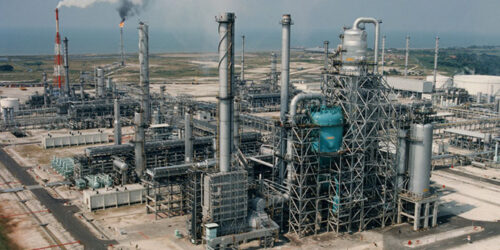The government has decided not to extend guarantees for offtake of POL products from the new refineries. And more importantly the government will also not provide the guaranteed rate of return on the equity and will not ensure internal rate of return as well.
The refineries, however, would be free to market their products through their own or other marketing companies or make export after meeting the local needs. However, for new refineries, there will be a 20-years tax holiday and for upgradation and modernization of the existing refineries, a 10 years tax holiday will be extended. This is part of the new refinery policy draft in circulation among the stakeholders and various economic ministries following which it will be forwarded to the ECC (Economic Coordination Committee) for approval.
The Special Assistant to the Prime Minister on Power and Petroleum, Tabish Gauhar, confirmed this while talking to The News. He said a Chinese company has expressed willingness to set up at Gwadar deep conversion refinery having capacity to refine 250,000 BPD crude oil.
The Chinese company has also confirmed that the government’s policy of not providing guaranteed offtake of POL products besides there will be no guaranteed rate of return on equity and internal rate of return. “The authorities at Petroleum Division are trying to include this refinery in the agenda of 10th JCC to include it under the CPEC umbrella,” Gauhar said.
The government has also decided to seek investment from China for becoming a shareholder in the state-of-art PARCO coastal refinery and petrochemical complex of $8-9 billion, to be built at Hub, Balochistan.
Against this backdrop, in the next 10th Pak-China JCC meeting, the PARCO coastal refinery project among others is the main project on part of Pakistan that will be included in the agenda. More importantly, projects like LNG storages and exploration and production projects will be also offered to China in the 10th JCC meeting.
“Pakistan wants investment in refinery, exploration and production activities and LNG storage projects and seismic surveys in frontiers and hard areas from China under the CPEC umbrella.”
However, sources said that in the new policy draft for refineries, all new deep conversion oil refinery projects of a minimum of 100,000 bpd refining capacity that begin construction before June 30, 2025 shall be eligible for the following fiscal incentives:
A 20 year income tax holiday of all taxes under clause 126 (BA) of Income Tax Ordinance 2001, from the date of commissioning of the project will be provided. But, the Product Pricing Formula of refineries shall be based on “True Import Parity Price” to be derived from Arab Gulf Mean FOB spot price, or if not published shall be derived from Singapore Mean FOB price.
All other elements including Premium, Freight, Port Charges, Incidentals and Import Duties shall be added in the above FOB to arrive at True Import Parity Price. Ad valorem taxes shall then be added to arrive at final consumer price.
There shall be no import duties on import of crude oil, being the main raw material, by refineries. The finished products, however, shall be subject to import duties notified by the competent authority from time to time.
There shall be a 10% import duty on Motor Gasoline and Diesel of all grades as well as imports of any other white product used for fuel for any kind of motor or engine, from July 1, 2021 to June 30, 2026. The rate of import duty would then drop one percent per annum such that it is reduced to 5% on July 1, 2030, and shall remain fixed at 5% thereafter.
This declining scale tariff protection shall be available to a new refinery starting from its commissioning date (i.e. 10% for 5 years, with a declining rate of 1% for next five years and shall remain fixed at 5% thereafter), as long as such refinery starts construction before June 30, 2025.







